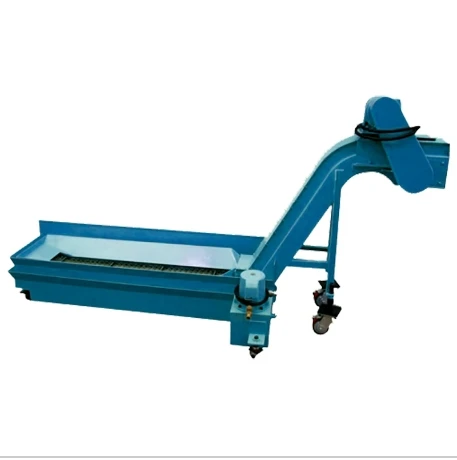Design and Functionality of Advanced Chip Conveyor Systems for Efficient Manufacturing
The Importance of Chip Conveyors in Modern Manufacturing
In today's fast-paced industrial environment, efficiency and productivity are key drivers of success. Among the many innovations that facilitate efficient manufacturing processes, chip conveyors play a crucial role, particularly in machining operations. These conveyors are designed to transport metal chips, shavings, and other byproducts generated during machining processes from the work area to a designated disposal or recycling location. Their importance cannot be overstated and extends across various dimensions of manufacturing.
Understanding Chip Conveyors
Chip conveyors are specialized systems developed to handle the specific challenges associated with the removal and transport of chips created while machining metal. These chips can vary in size, shape, and material, depending on the type of operation and the machines involved. Effective chip management is essential not only for maintaining a clean working environment but also for enhancing the efficiency of manufacturing operations.
The Role of Chip Conveyors in Manufacturing
1. Efficiency in Operations During machining operations, chips can accumulate rapidly, leading to potential machine downtime. Chip conveyors efficiently remove these chips from the workstation, ensuring that machines can operate continuously without interruption. This uninterrupted workflow maximizes output and reduces wasted labor and cycle time.
2. Improved Workplace Safety An accumulation of metal chips in the machining area can pose significant safety hazards. Workers risk slips, trips, and falls, which can lead to injuries. By using a chip conveyor, the risk of accidents is minimized, creating a safer working environment. Additionally, conveyors can prevent chips from causing damage to other machinery or equipment.
3. Enhanced Quality Control Effective chip removal helps maintain the precision of machining processes. Excessive chips can interfere with cutting tools, leading to wear and tear that can compromise the quality of the finished product. By efficiently managing chip removal, manufacturers can ensure that tools perform effectively, leading to higher quality outputs.
chip conveyor

4. Environmental Sustainability Many manufacturers are now focusing on sustainability practices, and chip conveyors play a role in reducing waste. By facilitating the collection and transport of metal scraps, these conveyors make it easier to recycle materials, which contributes to a more sustainable manufacturing process. Metal chips can be repurposed or recycled, reducing the environmental impact of production.
5. Versatility and Customization Chip conveyors come in various designs and configurations, allowing them to be customized to fit specific manufacturing processes. Whether it's a horizontal, inclined, or vertical conveyor, manufacturers can choose a system that best supports their operational needs. The adaptability of chip conveyors adds to their efficacy in various industries, including automotive, aerospace, and electronics.
Types of Chip Conveyors
There are several types of chip conveyors, and the choice depends on the specific requirements of the manufacturing facility. Some common types include
- Belt Conveyors These are generally used for light to moderate chip loads and are effective for continuous transport. - Auger Conveyors These are ideal for moving particularly heavy or bulky chips and can operate at various angles. - Drag Chain Conveyors These are designed for heavy-duty applications and can handle larger quantities of chips efficiently.
- Magnetic and Electromagnetic Conveyors These use magnetic forces to transport ferrous materials, offering a unique solution for specific applications.
Conclusion
Chip conveyors are an essential component of modern manufacturing processes, contributing to efficiency, safety, quality, and sustainability. As technological advancements continue to evolve, so too will the capabilities of chip conveyor systems. Manufacturers who invest in efficient material handling solutions like chip conveyors will position themselves favorably in an increasingly competitive market. By not only managing waste effectively but also enhancing operational effectiveness, chip conveyors prove to be invaluable assets in the contemporary manufacturing landscape.








